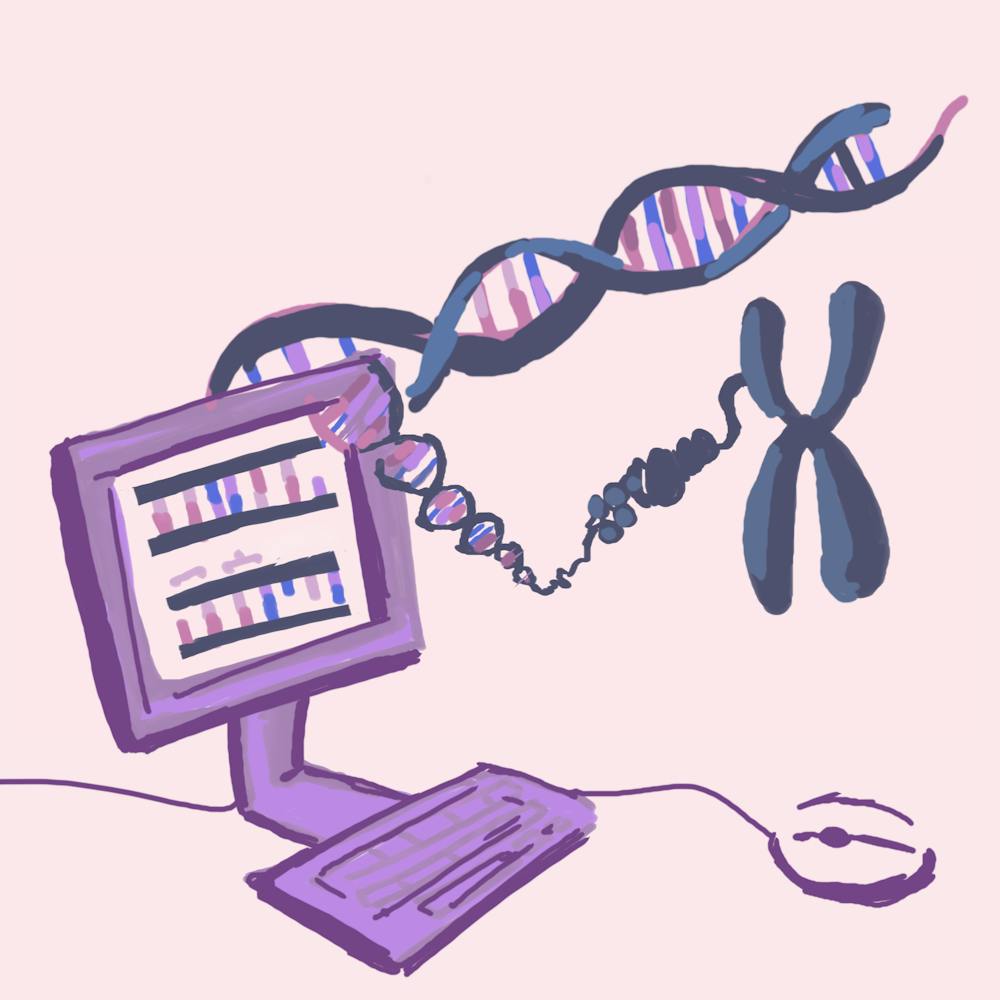With the human genome consisting of over 6.4 billion base pairs, quantum computing may prove to be an efficient way to process genetic data. Stephan Bekiranov, computational biologist and associate professor, has developed an algorithm that utilizes a quantum computer in order to study genetic diseases. This algorithm was designed to introduce efficiencies in the computations by reducing the number of calculations performed in an operation. This breakthrough opens up possibilities for researchers in the medical and genetics field to crunch data in a more faster and efficient manner, paving the way for more medical breakthroughs to be made.
Genetic diseases arise when there are variations in DNA sequences when compared to normal sequences. According to Wei-Min Chen, associate professor of public health sciences and genetics expert, genetic disorders can be caused by mutations in one or multiple genes or by damage to chromosomes, which can occur due to errors in cell division or exposure to toxic substances such as alcohol or drugs. Additionally, a person may be missing a chromosome or have an extra one.
The millions of structural units that make up DNA are called nucleotides. Ultimately, it is imperative that scientists study and identify the nucleotide differences in DNA in order to develop ways to treat genetic diseases. However, genetic data is vast, so computations are essential for analyzing it.
“Computer algorithms can be more computationally efficient than before,” Chen said. “The genetic data are still growing exponentially, and even better computing technology is still needed.”
Like Chen, Bekiranov recognizes the need for faster mass computing technology as exponentially growing genetic data has led to millions of nucleotide differences.
“Just imagine datasets where you have billions of nucleotide variations across billions of people,” Bekiranov said. “If you can develop algorithms that are able to do computations over a vast data space, like a quantum computer, in principle you could introduce efficiencies in the computation.”
As opposed to classical computing, where information is processed through bits — ones or zeros — quantum computers analyze information through qubits, the basic unit of quantum information.
Let us imagine a scenario where we have to process 2 bits. There are 4 possible states that can exist for it: 00, 01, 10 and 11. A classical computer would have to go through each possibility. However, using a quantum computer, all four states would be considered synchronously by using laws of probability, where each state has an equal probability of occuring.
This is the key behind the efficiency in Bekiranov’s algorithm. Since genetic information is vast and often on the scale of billions of bits, the time taken to process data by his algorithm is exponentially reduced.
While a conventional computer would have to perform three billion operations on a computation of genetic data, this algorithm would only take 32 operations in a quantum computer, thus leading to an exponential gain in processing time.
Bekiranov has a doctorate in theoretical physics and has studied quantum mechanics, but 20 years ago, he transitioned into computational biology, which has now been his focus of study. He has been working on this project in quantum computing for one year.
“As part of a collaboration with a colleague, we were working on the kind of the variations in the copy number of genomic segments,” Bekiranov said. “Turns out, you can have little bits of your genome kind of lost. Or you can actually have even extra copies in your cells.”
His colleague Mike McConnel, assistant professor in the department of biochemistry and molecular genetics, once inquired about the applications of quantum mechanics in their project. After approaching the National Institute of Health about the applications of quantum computing in biomedical and neuroscience research, Bekiranov’s team attended a series of workshops in order to gain funding for their research. With the help of his colleague, Kunal Kathuria, postdoctoral research associate and scientist at siebner institute of brain development, Bekiranov was then able to develop the algorithm that could work on genomic data.
Even with the field of quantum computing still in its budding stage, Bekiranov’s and Kathuria’s work in developing this algorithm is an example of how breakthrough technology can be used to effectuate the research in the genetic and medical fields.
Bekiranov sees a broad future for the applications of quantum computing in biomedical research. From chemistry concepts such as density function theory, to biomolecule research in drug design, there are numerous applications that prove the important role of quantum computing in ongoing research today.
As for now, the powers of a quantum computer can be focused on furthering scientific findings.
“We have tons and tons of large data sets in biomedical research now, and the ability to do computations efficiently is where quantum computing fits in with genetics,” Bekiranov said.







